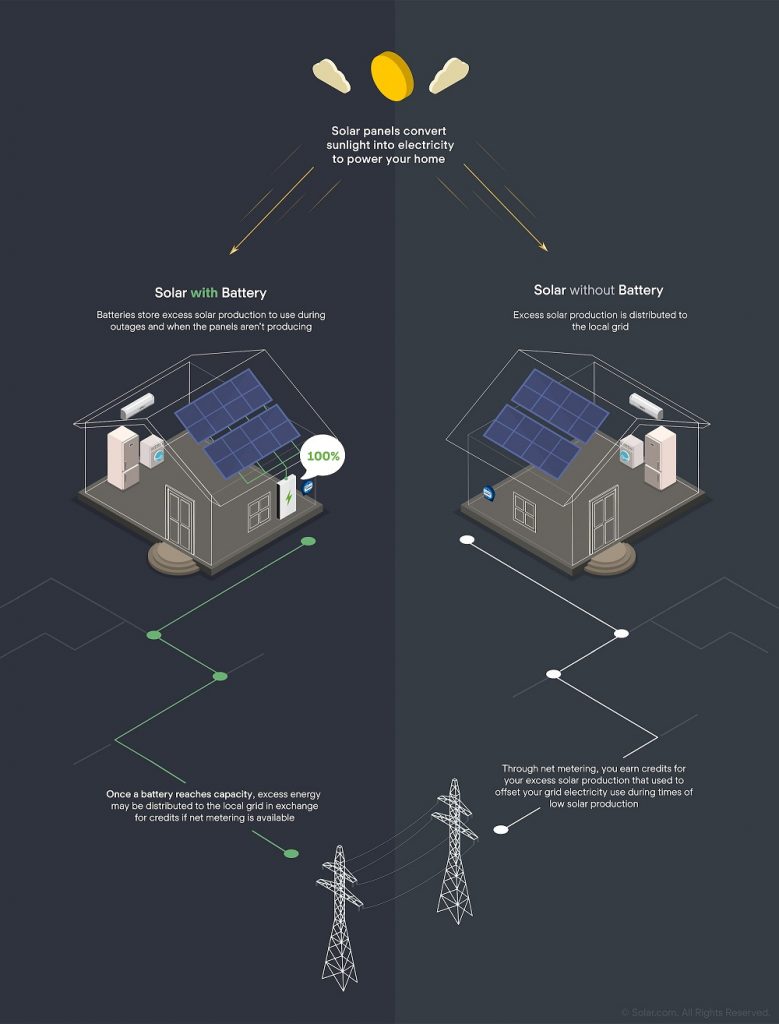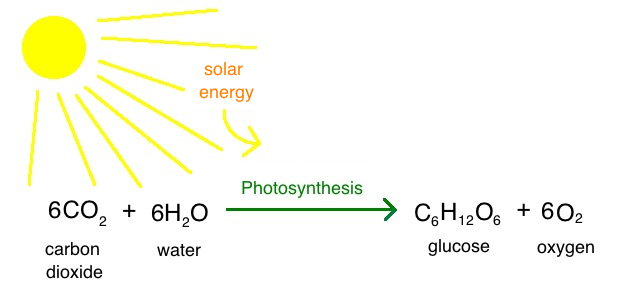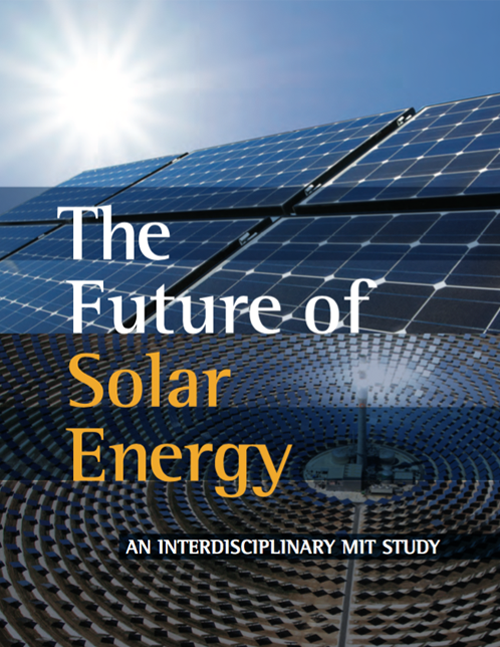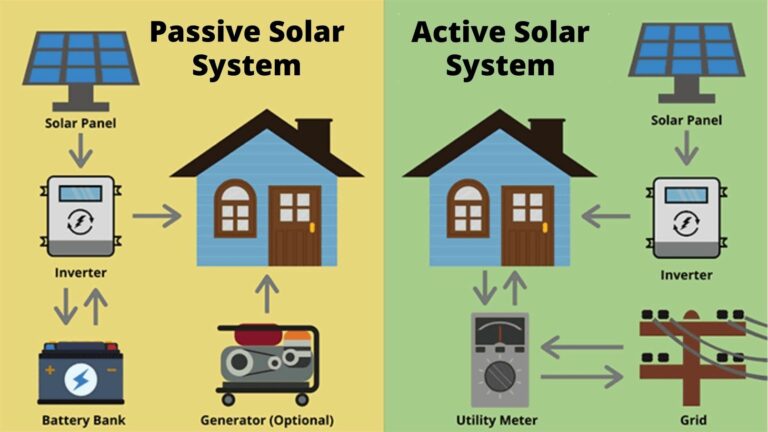Do Solar Panels Store Energy Without Batteries?
Have you ever wondered if solar panels can store energy without the need for batteries? Well, you’re in the right place! Today, we’ll explore this fascinating topic and uncover the truth behind it. So, let’s dive in and satisfy your curiosity!
Solar panels have become increasingly popular as a renewable energy source. They harness the power of the sun to generate electricity. But what happens when the sun goes down or on cloudy days? Can solar panels still store energy and provide electricity? Let’s find out!
You may have heard about batteries being used to store the energy produced by solar panels. However, there’s another way that solar panels can store energy without the need for batteries. Intrigued? Stick around as we uncover this amazing process.

Do Solar Panels Store Energy Without Batteries?
Welcome to our in-depth article on the topic of whether or not solar panels can store energy without the use of batteries. Solar energy is a clean, renewable source of power that has gained popularity in recent years. Many people are curious about the capabilities of solar panels when it comes to storing energy. In this article, we will explore the mechanisms behind solar energy storage and discuss if batteries are necessary for this process.
How Do Solar Panels Store Energy?
Solar panels are primarily designed to convert sunlight into electricity through the photovoltaic effect. When sunlight hits the solar panels’ surface, the photovoltaic cells absorb the energy and release electrons. These electrons then flow through the cells’ electrical circuit, generating an electrical current. However, solar panels do not have the intrinsic ability to store this electricity for later use. Instead, they produce electricity in real-time and rely on an external storage system to save the excess energy.
1. Net Metering and the Grid
One way solar panels can store energy without batteries is through a system called net metering. Net metering allows you to send any excess electricity generated by your solar panels back to the electrical grid. In essence, your home becomes a mini power plant, supplying electricity to the grid. On days when you generate more electricity than you consume, this excess energy is fed back to the grid, effectively “storing” it for later use. Then, when your solar panels are not producing enough electricity, you can draw power from the grid to meet your energy needs.
Net metering is advantageous because it eliminates the need for costly battery storage systems. Instead, the electrical grid acts as a virtual “battery.” When the sun is shining and your solar panels are generating surplus electricity, you effectively “store” it in the grid. This stored energy can be used at a later time when your panels are not producing enough electricity, such as during the night or on cloudy days.
2. Solar Power Purchase Agreements (SPPAs)
Another method of energy storage without batteries is through Solar Power Purchase Agreements (SPPAs). SPPAs are contractual agreements between a homeowner or business and a solar energy provider. Under an SPPA, the provider installs and maintains solar panels on the customer’s property, typically at no upfront cost. The provider then sells the generated electricity to the customer at a predetermined rate.
In this arrangement, the solar panels store excess energy during the day when production is high. This stored energy is then consumed by the customer during periods of low production, such as at night or during inclement weather. The solar energy provider essentially acts as the energy “bank,” handling the storage and distribution of electricity without the need for on-site batteries.
3. Solar-Plus-Storage Systems
While solar panels can store excess energy without batteries through net metering and SPPAs, there is also the option of using solar-plus-storage systems. These systems combine solar panels with battery storage to provide a more consistent and reliable energy supply. With this setup, any surplus energy generated by the solar panels during the day is stored in the batteries for later use.
Solar-plus-storage systems offer several benefits. They allow homeowners to have greater control over their energy consumption and to become more self-sufficient. Having batteries allows you to use stored energy during power outages or when the grid is down. Additionally, solar-plus-storage systems can enable the use of solar energy during peak demand hours, helping reduce reliance on fossil fuels and lowering electricity costs.
However, it’s important to note that solar-plus-storage systems come with additional costs, including the purchase and maintenance of batteries. These systems require careful planning and consideration to ensure they align with your energy needs and budget.
4. The Future of Solar Energy Storage
As technology continues to advance, researchers and engineers are exploring innovative ways to store solar energy without batteries. One promising avenue is through the use of solar thermal energy storage. Solar thermal systems use mirrors or lenses to concentrate sunlight onto a thermal energy storage medium, such as molten salt. This heated medium can then be used to generate electricity or provide heat even when the sun is not shining.
Another area of development is in the field of hydrogen fuel cells. Researchers are studying ways to use excess solar energy to produce hydrogen through electrolysis. This hydrogen can then be stored and used to generate electricity through fuel cells when needed. While these technologies are still in the early stages of development, they hold great potential for storing solar energy without the need for traditional battery storage systems.
In conclusion, while solar panels themselves do not store energy without batteries, there are several methods through which excess energy can be stored and utilized without the need for on-site batteries. Net metering and Solar Power Purchase Agreements allow homeowners and businesses to “store” energy in the electrical grid, while solar-plus-storage systems provide a more comprehensive approach with the use of batteries. As the renewable energy industry continues to evolve, we can expect even more innovative solutions for solar energy storage to emerge, offering greater flexibility and sustainability.
Key Takeaways: Do Solar Panels Store Energy Without Batteries?
- Solar panels can generate electric energy from sunlight.
- They do not store energy on their own, but rather convert sunlight into usable electricity in real-time.
- Without batteries, solar panels cannot store excess energy for later use.
- Grid-tied solar systems can send excess energy back to the electrical grid for credit.
- Storing solar energy without batteries requires alternative methods like using solar water heaters or solar thermal systems.
Frequently Asked Questions
As we explore the world of solar panels, some questions may arise about how they function. Here are five commonly asked questions related to the topic of solar panels storing energy without batteries.
1. Can solar panels store energy without batteries?
Solar panels themselves do not store energy. Instead, they generate electricity through the photovoltaic effect. When sunlight hits the solar cells in the panel, it creates a flow of electrons, generating a direct current (DC) of electricity. However, without a way to store this energy, it is immediately consumed or fed back into the grid.
To store energy generated by solar panels, batteries or other energy storage systems are required. These storage systems can absorb the excess energy produced by the panels during the day and release it when the panels are not producing electricity, such as during the night or on cloudy days. This allows you to have a reliable and continuous supply of solar energy even when the sun is not shining.
2. Do I need batteries to store energy from solar panels?
No, batteries are not the only option for storing energy from solar panels. While batteries are a popular choice for residential applications, there are other methods available. One alternative is to use a grid-tied solar system without batteries.
In a grid-tied solar system, excess energy generated by the solar panels is fed back into the electrical grid. This excess energy is then credited to you, effectively spinning your electricity meter backward. When you need electricity at a later time, such as during the night or on cloudy days, you can draw power from the grid. This allows you to use the grid as a virtual energy storage system, without the need for physical batteries.
3. What are the benefits of storing energy from solar panels without batteries?
Storing energy from solar panels without batteries has several benefits. Firstly, it reduces the overall cost of installing a solar energy system since batteries can be expensive. Without batteries, the initial investment is lower, making solar energy more accessible to a wider range of people.
Secondly, a grid-tied solar system without batteries eliminates the need to monitor and maintain batteries, which can require periodic maintenance and replacement over time. This simplifies the overall system and reduces maintenance costs.
4. Can I use solar panels to power my home at night without batteries?
Without batteries, solar panels alone cannot power your home at night. Since solar panels only generate electricity when there is sunlight, they cannot provide power during nighttime hours. However, if you have a grid-tied solar system, you can draw electricity from the grid during the night when your solar panels are not producing energy.
This means that you can still benefit from solar energy during the day when the panels are generating electricity, and rely on the grid for power at night. By using a grid-tied system, you can offset your energy consumption with solar power, which can lead to cost savings on your utility bills.
5. Can I store excess energy from solar panels in other ways, without using batteries or the grid?
Yes, there are alternative methods for storing excess energy from solar panels without using batteries or the grid. One option is to use a method called solar water heating. This involves using the excess electricity generated by the panels to heat water, which can then be stored and used when needed.
Solar water heating systems typically use a solar collector, such as a flat plate or evacuated tube, to capture the sun’s energy and heat a fluid, which is then transferred to a storage tank. This heated water can be used for various purposes, such as domestic hot water, space heating, or even swimming pool heating. It’s a practical way to utilize excess solar energy without the need for batteries or relying on the electrical grid.
If You Have Solar Without Home Batteries, You Might Be Kidding Yourself
Summary
Solar panels can convert sunlight into electricity, but they don’t store energy like batteries do. When the sun shines on solar panels, they generate electricity that can power devices or be sent to the grid. At nighttime or on cloudy days, solar panels can’t produce electricity because they need sunlight.
However, there are two ways to use solar energy when the sun isn’t shining. One is by connecting the solar panels to the grid, so the excess electricity produced during the day can be used during dark times. The other way is by using solar panels with a device called an inverter that converts the DC electricity produced by the panels into AC electricity that can be used immediately or stored in batteries for later use.
In conclusion, while solar panels are great at producing electricity from sunlight, they don’t store energy without the help of the grid or an inverter. So, if you want to have solar energy available at all times, you’ll need to connect your panels to the grid or use an inverter with batteries.



